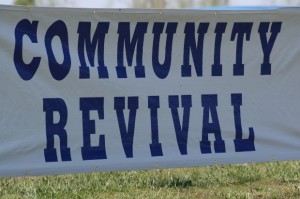 GILBERT, Ariz. — A nationally-recognized Christian legal organization has filed a petition with the United States Supreme Court, asking that it agree to hear a case surrounding an Arizona municipal law that indirectly forces churches to display their signs at night, while allowing other types of signs to remain displayed 24/7.
GILBERT, Ariz. — A nationally-recognized Christian legal organization has filed a petition with the United States Supreme Court, asking that it agree to hear a case surrounding an Arizona municipal law that indirectly forces churches to display their signs at night, while allowing other types of signs to remain displayed 24/7.
As previously reported, in 2008, Good News Community Church of Gilbert filed a lawsuit in federal court seeking to obtain an injunction against the city’s sign ordinance, which prohibited entities from displaying temporary directional signs on the public ways more than 12 hours before services and more than 1 hour afterward.
The church had found itself in disputes with the city prior to filing the suit, as officials claimed that members were displaying too many signs and was leaving them up for too long. A directional sign is a sign with an arrow, pointing traffic to a particular event or location.
Few time limitations are placed on political signs, and none at all on ideological signs—that is, a sign with a general message regarding a particular issue or subject matter. Therefore, the church advised the court that the ordinance is unbalanced and overly-burdened its desire to advertise its services out of the Bible’s command to “make disciples of all nations.”
During the initial proceedings in 2009, the district court refused to grant the injunction, seeing no problem with the requirement. The case then escalated to the 9th Circuit Court of Appeals, which ruled that there was no constitutional infirmity with the ordinance because it is “a content-neutral regulation” and “does not impermissibly favor commercial speech over noncommercial speech.”
However, the three-judge panel was divided as Judge Paul Watford opined that the ordinance violated the First and Fourteenth Amendemnts to the United States Constitution. He noted that since church services begin at 9 a.m., and the signs may only be erected 12 hours prior to the service, the signs would have to go up at 9 p.m. and remain through the dark of night, when no one could see them.
Watford found the requirement in this instance to be glaringly problematic—especially in light of the fact that political and ideological signs were not subject to similar limitations.
“To sustain the distinctions it has drawn, Gilbert must explain why (for example) a 20-square-foot sign displayed indefinitely at a particular location poses an acceptable threat to traffic safety and aesthetics if it bears an ideological message, but would pose an unacceptable threat if the sign’s message instead invited people to attend Sunday church services,” he continued. “Gilbert has not offered any such explanation, and I doubt it could come up with one if it tried.”
Therefore, Alliance Defending Freedom (ADF) has appealed the matter to the United States Supreme Court, and is asking that the 9th Circuit decision be reversed.
“No law should burden the speech of churches with restrictions that don’t apply equally to similar speakers,” stated ADF Senior Counsel David Cortman. “The town of Gilbert cannot apply stricter rules to church signs when it doesn’t apply them to ideological, political, and other non-commercial signs.”
“Discrimination based on the content of speech violates the First Amendment,” added Senior Legal Counsel Jeremy Tedesco. “If town officials were truly concerned about traffic safety as they claim, they would apply the rules evenly to all similar temporary signs.”
Become a Christian News Network Supporter...


